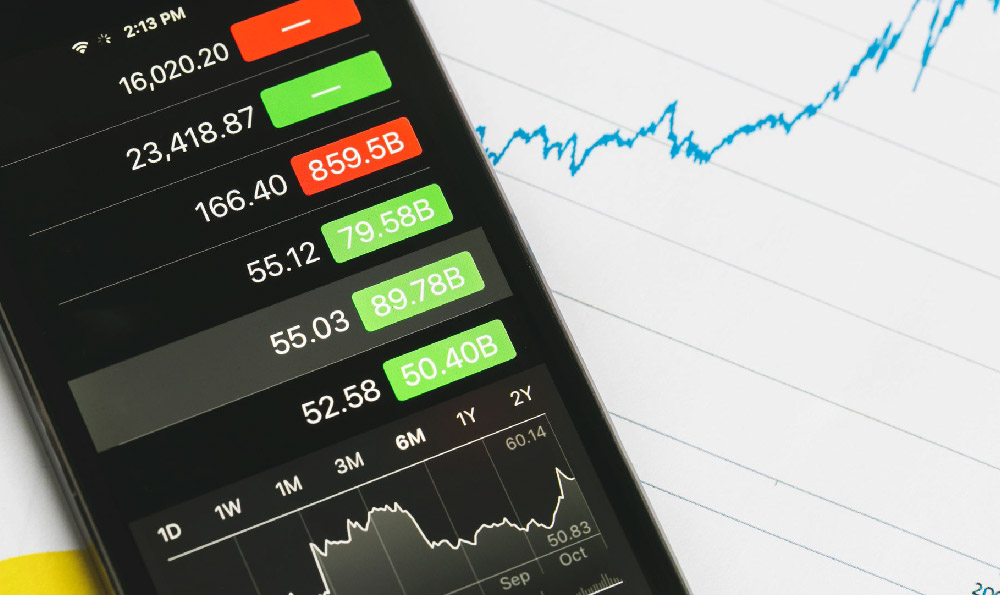Can Day Traders Earn Money?
Day trading has long been a subject of fascination in the financial world, drawing both aspiring investors and skeptical observers. The idea of making money by buying and selling assets within the same trading day can be appealing, especially for those looking for quick returns. However, the reality of day trading is far more nuanced. Success in this high-speed, high-stakes environment is not guaranteed, and its viability depends on a combination of market conditions, personal discipline, and strategic acumen. While some traders manage to profit consistently, others face significant risks and potential losses. Understanding these dynamics is crucial for anyone considering day trading as a potential income source.
The essence of day trading lies in capitalizing on short-term price fluctuations, which can occur due to various factors such as news events, market sentiment shifts, or algorithmic adjustments. markets like equities, forex, and cryptocurrencies are known for their volatility, making them fertile ground for day traders. forex trading, for instance, operates 24/5, providing constant opportunities, while cryptocurrency exchanges often experience rapid price swings. However, these very characteristics that create potential for profit also introduce substantial risks. The same market conditions that drive sudden upward or downward movements can lead to quick losses if not managed properly. This is where technical analysis and risk management strategies become indispensable. traders who rely solely on intuition or guesswork rarely endure the harsh realities of market fluctuations, as even the most promising trades can be reversed by unexpected events.
A critical factor in day trading success is the ability to navigate the psychological demands of the trade. emotions like fear, greed, and impatience can cloud judgment, leading to impulsive decisions. For example, the fear of missing out on a potential gain might push traders to take excessive risks, while the fear of losing capital could cause them to hold onto losing positions for too long. Conversely, greed often tricks traders into chasing profits, leading to overexposure and catastrophic losses. Building mental resilience and maintaining strict discipline are therefore paramount. Successful traders often emphasize the importance of sticking to a predefined trading plan, avoiding emotional reactions, and practicing patience. these habits not only prevent impulsive trading but also foster a more structured and rational approach to the markets.

The role of technology and tools in day trading cannot be overstated. modern trading platforms, real-time data feeds, and algorithmic tools provide traders with the ability to analyze market trends, execute strategies swiftly, and mitigate risks. for example, technical indicators like the relative strength index (RSI) and moving average convergence divergence (MACD) help identify potential entry and exit points, while trading software enables the automation of strategies. these tools are particularly valuable in high-frequency trading environments, where milliseconds can determine profitability. however, it’s essential to recognize that technology is only as effective as the trader’s ability to use it wisely. overreliance on automated systems without understanding the underlying market dynamics can lead to disastrous outcomes, especially during unexpected volatility.
Day trading also demands a high level of adaptability. markets are constantly evolving, influenced by macroeconomic factors, geopolitical events, and technological advancements. traders who fail to adapt their strategies to these changes often struggle to remain profitable. for instance, during periods of economic uncertainty, market trends can shift unpredictably, forcing traders to rethink their approaches. this adaptability is not just about responding to external factors but also about refining internal processes continuously. experienced traders regularly review their performance, adjust their risk parameters, and refine their strategies based on market dynamics. this iterative process is key to sustaining profitability over time.
The profitability of day trading is often intertwined with the trader’s ability to manage risk effectively. while the allure of quick profits can tempt traders to take on excessive risk, a disciplined approach focuses on capital preservation. successful day traders typically employ strategies such as stop-loss orders, position sizing, and diversified portfolios to protect their investments. these practices not only help manage losses but also allow traders to capitalize on opportunities without jeopardizing their overall financial health. For example, a trader who limits their individual position size to a small percentage of their total capital is better equipped to weather market downturns.
In the broader financial landscape, day trading is often viewed as a niche strategy. while some traders leverage it to generate additional income, it’s not a one-size-fits-all solution. the average day trader’s success rate is heavily influenced by their educational background, experience, and the amount of time they dedicate to the markets. those who invest in continuous learning, practice on simulated platforms, and gradually transition to live trading tend to have better outcomes. Moreover, the financial industry is evolving, with more digital tools and resources available to traders, making it easier to access information and refine strategies.
Ultimately, day trading is a double-edged sword. it offers the potential for substantial profits but requires a deep understanding of market mechanics, emotional control, and strategic discipline. while it is possible for day traders to earn money, especially those who approach it with a well-structured plan, the journey is fraught with challenges. the key to success lies not in chasing quick riches but in cultivating the skills and mindset necessary to thrive in the ever-changing financial markets. with the right approach, day trading can be a viable way to generate income, but it’s essential to recognize that it’s not a guaranteed path to wealth.















